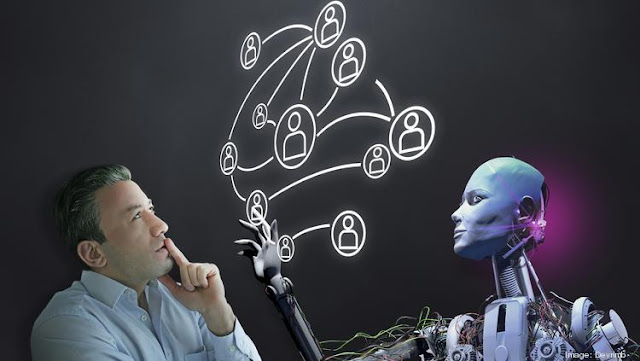In these days and age,
technology has such a strong presence in the daily life of society. Social
media has transformed from being a fun and expressive outlet for personal usage to a money-making tool for businesses.
As we scroll endlessly through Instagram and see photos with the
hashtag #ad, we see influencers promoting products and experiences. It is so
important for these influencers to have relatable connections with their
followers. Not only do we see these promoted pictures, but also suggested
products through advertisements. These advertisements from companies are
computed through data to appear on our feed.
Artificial intelligence (AI) is a
computer science that is able to collect data to generate outcomes. The use
of AI has dramatically increased through the years as
technology also progresses. AI is projected to grow from being worth $7.35
billion to $89.84 billion in 2025, which is an 82% increase in just seven
years. The purpose of AI is to help understand target audiences, improve user
experience, make marketing more effective and increase productivity. These four
attributes are what companies need to make their marketing plan a success.
Targeting audiences is a
defining marketing plan step because it separates a company, a product, or a
hotel from another. Consumer behavior is an important piece of data that AI is
able to collect through users’ interests, focus, demography, and price limits.
For example, there is a variety of hotel options for each traveler. Some may
seek a luxurious stay whereas others may want a convenient hotel. Targets
markets are also a part of a restaurant marketing plan because it heavily
relies on the location, demography and price limits of the surrounding
consumers. This goes hand in hand with improving user experience because AI
will project compatible products with compatible consumers. In a real-life
experience, these are the advertisements we see on our social media because
these companies are tracking the likes, shares, and searches of their consumers.
This aligns the needs of IT might seem like Big Brother is watching over us,
but it is actually AI.
AI has helped digital
marketing make strides in effectiveness and productivity. After AI helps target
an audience, it transforms into sales. For example, companies use AI
to post suggested products that can be an add-on for a product that a consumer
is already looking at. As a consumer myself, those “people also bought this”
products always catch my eye. It makes me feel as if I need to get the
additional product as well solely because other people do.
This marketing strategy
works well because it forms a sense of belonging for the target audience.
This type of personalization is what create sales between consumers and
businesses because consumers are more attracted to what is meant for them. The
use of algorithms helps prevent companies from wasting their time and money
from repetitiveness. AI emphasizes focusing on those consumers who
are more likely to create business with that company rather than those who
might not be interested. AI helps keep
existing customers and attracting new ones.
AI is a growing knowledge that companies are able to utilize to grow their
business. Because AI focuses on the consumer and is able to
translate all consumers' needs and demands into data for companies to make informed business decisions. This
helpful technology has already changed the way companies can do to stay in
contact with their audience, and more are expected to be accomplished through AI in the coming years.
How does using
artificial intelligence not invade the privacy of consumers? How does the hospitality
industry keep up with the developing technology?
About the Author
Megan Vo is a
second-year Hospitality Management student at the Collins College of Hospitality
Management in Cal Poly Pomona. She is a member of the National Society for
Minorities in Hospitality and the Zeta Tau Alpha Sorority. She hopes to pursue
a career in event management in the hospitality industry.

Comments
Post a Comment